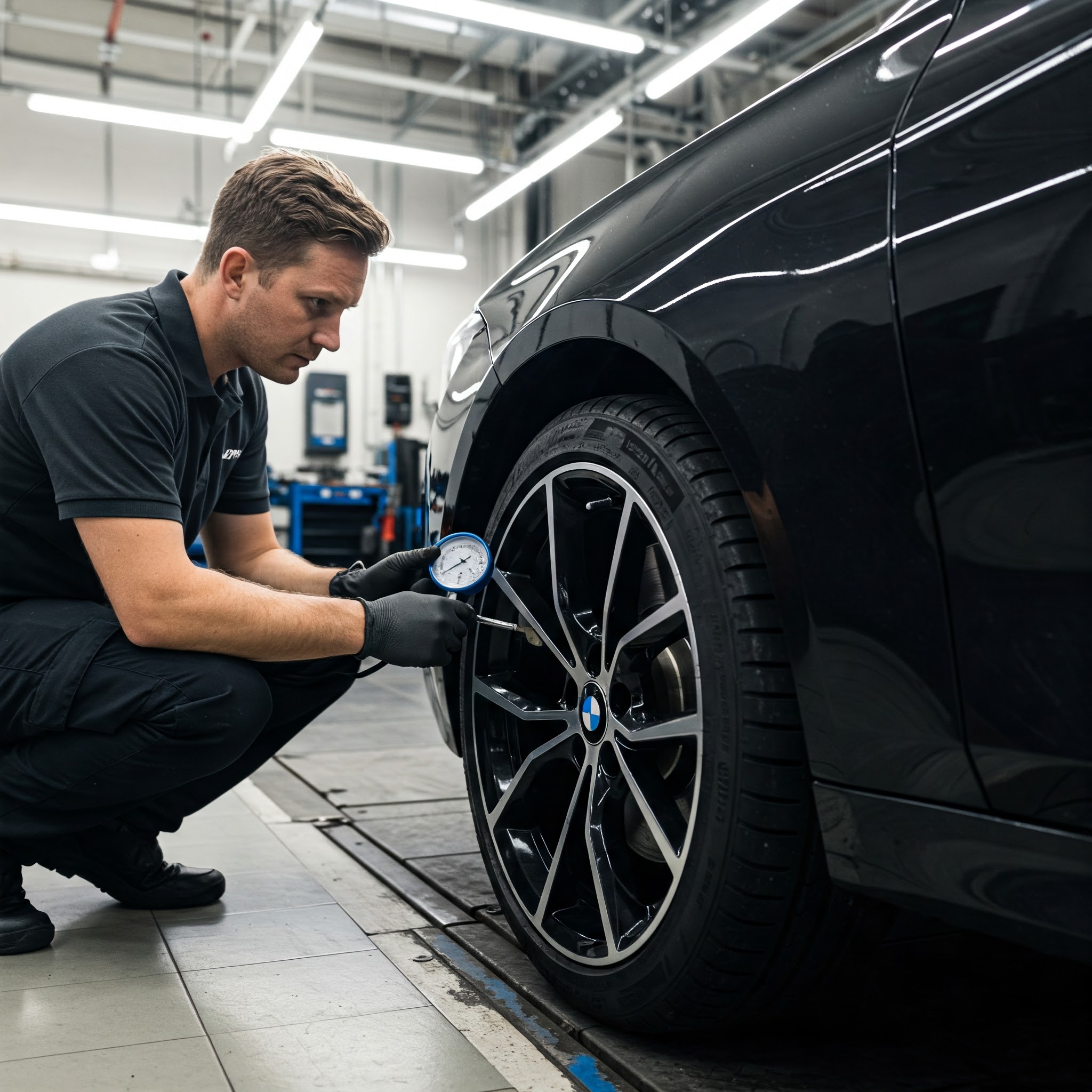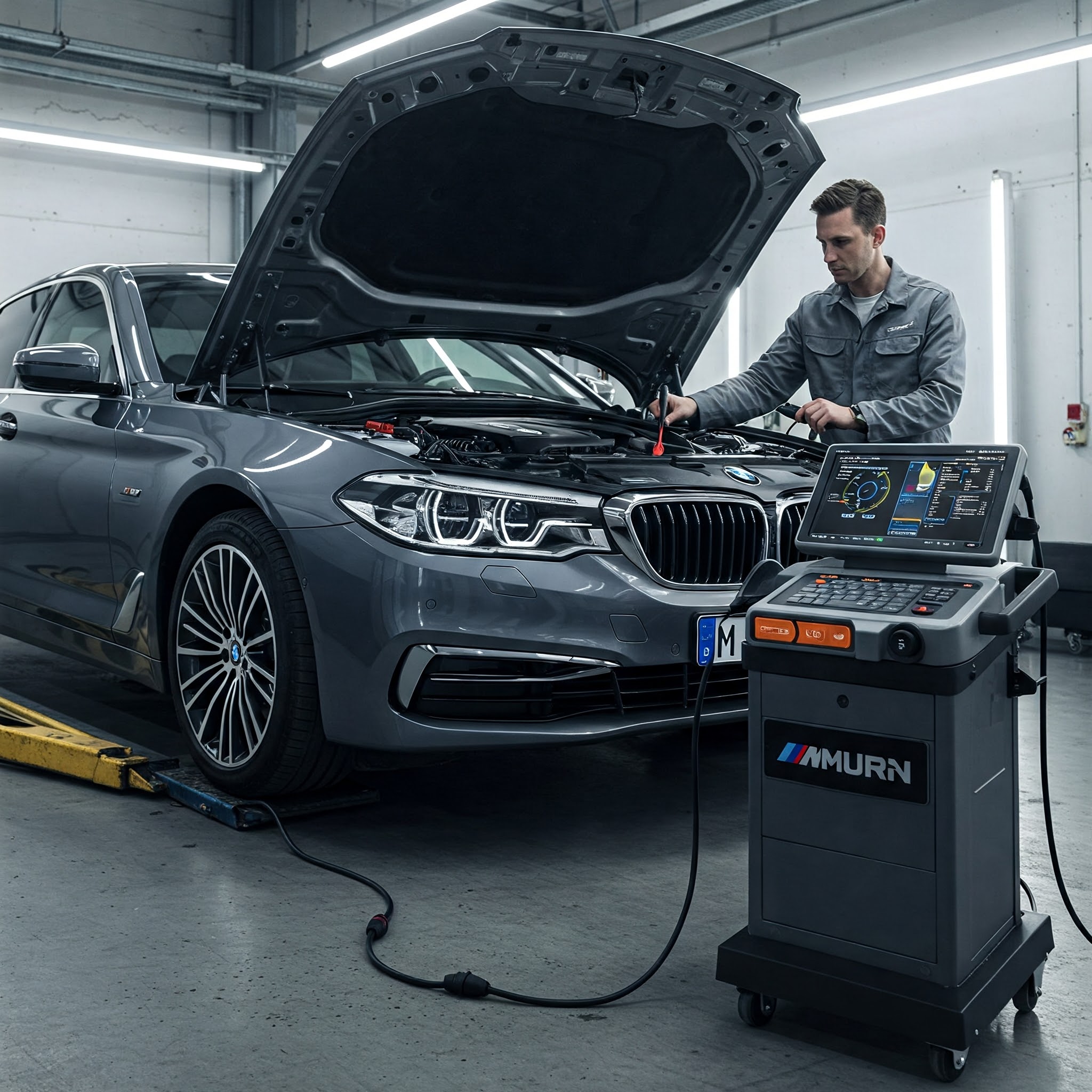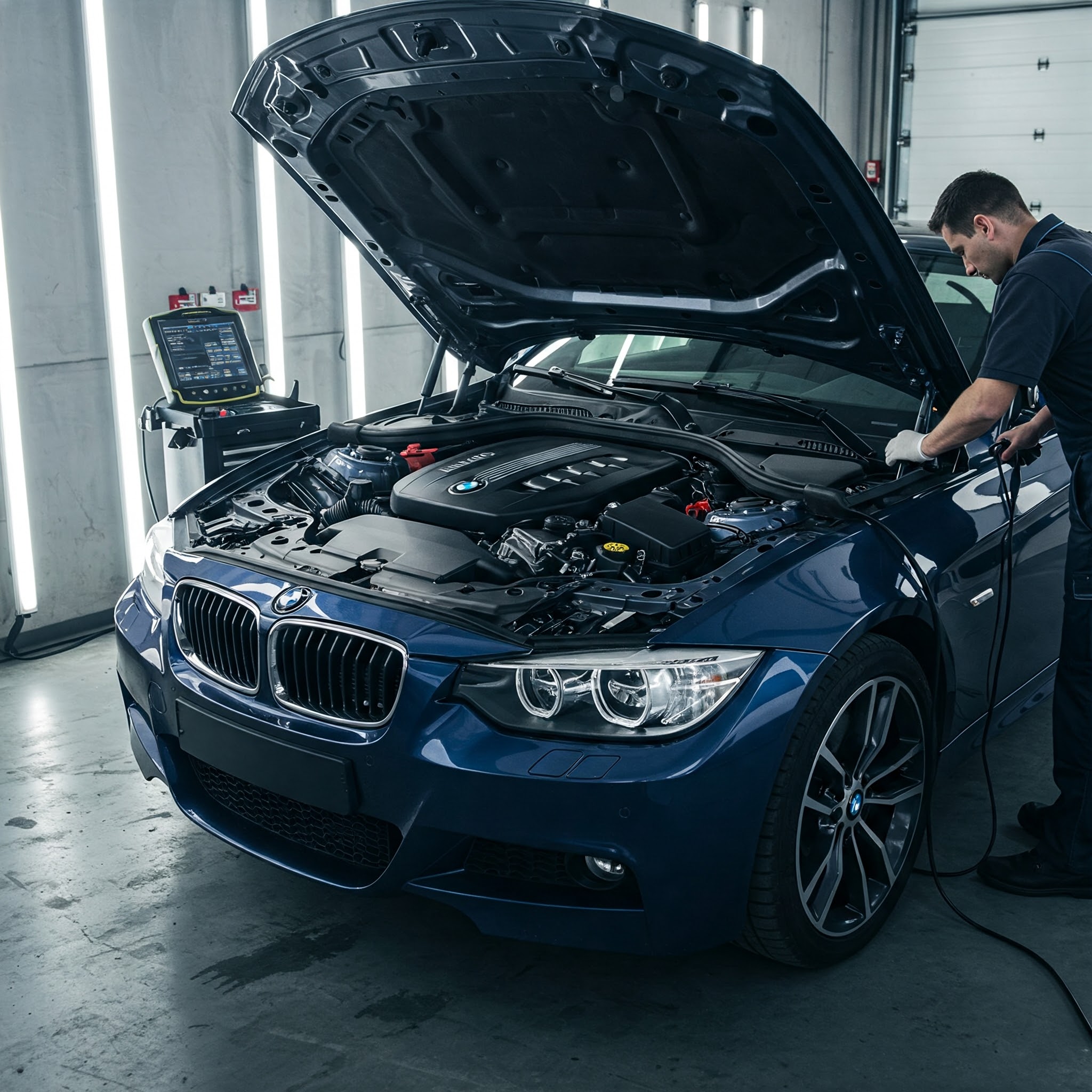
Essential Guide to BMW Inspection: What Every Owner Should Know
If you own a BMW, understanding how to properly inspect your vehicle is crucial. Regular BMW inspections help keep your car running smoothly and safely. This guide will walk you through the importance of inspections, what is checked, how often to schedule one, and tips for preparing for inspection day. By following these guidelines, you can ensure your BMW remains in top condition for years to come.
Key Takeaways
- Regular BMW inspections are important for safety and performance.
- Key areas checked include the engine, brakes, and electrical systems.
- Follow manufacturer guidelines for how often to schedule inspections.
- Choose a service center with certified technicians and good reviews.
- Prepare your car by cleaning it and noting any issues before the inspection.
Understanding the Importance of BMW Inspection
Regular inspections are essential for keeping your BMW in top shape. These checks help catch problems early, which can save you money in the long run. Here are some key reasons why inspections matter:
- Safety: Inspections ensure that your vehicle is safe to drive.
- Performance: A well-maintained BMW runs better and feels smoother on the road.
- Longevity: Following the recommended BMW service intervals is crucial not just for the longevity of your vehicle but also for its efficient and safe performance.
Why Regular Inspections Matter
Regular inspections help identify issues before they become serious. This proactive approach can prevent breakdowns and costly repairs.
Impact on Vehicle Longevity
Taking care of your BMW through regular inspections can extend its life. A well-maintained car can last for many years, providing you with a reliable driving experience.
Ensuring Safety and Performance
Safety is a top priority. Inspections help ensure that all parts of your vehicle are functioning correctly, which is vital for your safety on the road.
Regular inspections are not just a good idea; they are a necessary part of responsible car ownership. They help keep your BMW running smoothly and safely.
Key Components Checked During a BMW Inspection
When you take your BMW in for an inspection, several key components are thoroughly checked to ensure everything is running smoothly. Regular inspections are crucial for maintaining your vehicle’s performance and safety. Here are the main areas that technicians focus on:
Engine and Transmission
- Engine performance: Technicians will check for any unusual noises or leaks.
- Transmission fluid levels: Ensuring the fluid is at the right level is vital for smooth shifting.
- Belts and hoses: These are inspected for wear and tear.
Brakes and Suspension
- Brake pads and rotors: These are examined for wear to ensure effective stopping power.
- Suspension components: Shocks and struts are checked for proper function and comfort.
- Highlighting the importance of quality brake parts, as mentioned in the guide on expert BMW brake repair near me.
Electrical Systems
- Battery health: The battery is tested to ensure it holds a charge.
- Lights and signals: All lights are checked for functionality.
- Wiring and connections: These are inspected for any signs of damage or corrosion.
Fluid Levels and Leaks
- Oil levels: Checking the engine oil is essential for lubrication.
- Coolant levels: Ensuring the engine stays cool is critical.
- Leak checks: Technicians look for any fluid leaks that could indicate problems.
Regular inspections not only help in identifying issues early but also contribute to the overall longevity of your BMW. Keeping up with these checks can save you money in the long run.
How Often Should You Schedule a BMW Inspection?
Manufacturer Recommendations
Most BMW owners should follow the manufacturer’s guidelines for inspections. Typically, it’s recommended to have your vehicle checked every 10,000 to 15,000 miles or at least once a year. This helps ensure that your car runs smoothly and safely.
Signs It’s Time for an Inspection
Keep an eye out for these signs that indicate it’s time for an inspection:
- Warning lights on the dashboard
- Unusual noises while driving
- Decreased fuel efficiency
- Changes in handling or braking
If you notice any of these issues, it’s best to schedule an inspection right away.
Seasonal Considerations
Different seasons can affect your BMW’s performance. Here are some tips:
- Before winter, check your tires and battery.
- In spring, inspect the brakes and fluid levels.
- Summer is a good time to check the air conditioning system.
- Fall is ideal for a full inspection to prepare for winter.
Regular inspections are crucial for keeping your BMW in top shape. Don’t wait until something goes wrong!
Choosing the Right Service Center for Your BMW
When it comes to maintaining your BMW, selecting the right service center is crucial. Certified BMW technicians have the training and experience needed to handle your vehicle’s specific needs. Here are some key points to consider:
Certified BMW Technicians
- Look for service centers that employ technicians certified by BMW.
- These professionals are trained to understand the unique systems in BMW vehicles.
- They can provide specialized care that general mechanics may not offer.
Using Genuine BMW Parts
- Always choose a service center that uses genuine BMW parts.
- This ensures that your vehicle maintains its performance and safety standards.
- Using non-genuine parts can lead to issues down the line.
Customer Reviews and Reputation
- Check online reviews to gauge the reputation of the service center.
- Ask friends or family for recommendations based on their experiences.
- A good reputation often indicates reliable service.
Choosing the right service center can save you time and money in the long run. Make sure to do your research before making a decision!
Preparing Your BMW for Inspection Day
Getting ready for your BMW’s inspection day is important to ensure everything goes smoothly. Here are some steps to help you prepare:
Gathering Necessary Documents
- Keep your vehicle registration handy.
- Bring your insurance information.
- Have any previous inspection reports ready.
Cleaning and Organizing Your Vehicle
- Make sure the inside of your car is clean. This helps the technician check everything easily.
- Remove any personal items from the trunk and back seat.
- Check that your gas tank is at least a quarter full.
Noting Any Concerns or Issues
- Write down any strange noises or problems you’ve noticed.
- Pay attention to warning lights on your dashboard.
- Mention any recent repairs or maintenance done.
Being prepared can save you time and stress on inspection day.
By following these steps, you can help ensure that your BMW inspection goes as smoothly as possible. Remember, a little preparation can make a big difference!
Understanding BMW Inspection Costs and Warranties

What to Expect in Terms of Pricing
When it comes to BMW inspections, costs can vary based on several factors. Here’s a quick overview of what you might expect:
| Service Type | Average Cost |
|---|---|
| Basic Inspection | $100 – $200 |
| Comprehensive Check | $200 – $400 |
| Additional Repairs | Varies |
Regular inspections can save you money in the long run.
Warranty Coverage and Inspection
Most BMWs come with a warranty that covers certain inspections and repairs. Here are some key points to remember:
- Check your warranty details for coverage.
- Some inspections may be free under warranty.
- Extended warranties can offer additional peace of mind.
Cost-Saving Tips for BMW Owners
To help manage your expenses, consider these tips:
- Schedule inspections regularly to catch issues early.
- Look for service specials at your local dealership.
- Keep an eye on your vehicle’s maintenance schedule to avoid unexpected costs.
Understanding your BMW’s inspection costs and warranty can help you make informed decisions and keep your vehicle running smoothly.
By being proactive about inspections and knowing your warranty options, you can ensure your BMW remains in top shape while also saving money.
DIY Pre-Inspection Tips for BMW Owners

Basic Checks You Can Do at Home
Before taking your BMW for a professional inspection, there are some simple checks you can perform yourself. These checks can help you spot potential issues early. Here are a few things to look for:
- Tire Condition: Check for any visible wear or damage on all four tires.
- Fluid Levels: Make sure the oil, coolant, and brake fluid are at the right levels.
- Lights: Test all exterior lights, including headlights, brake lights, and turn signals.
Tools and Equipment Needed
To perform these checks, you’ll need some basic tools. Here’s a quick list:
- Tire pressure gauge
- Oil dipstick
- Flashlight for checking under the hood
When to Seek Professional Help
If you notice anything unusual during your checks, it’s best to consult a professional. Some signs that you should seek help include:
- Unusual noises from the engine
- Warning lights on the dashboard
- Fluid leaks under the car
Regular checks can save you money and keep your BMW running smoothly. Remember, a little effort goes a long way!
Conclusion
In summary, keeping your BMW in top shape is really important for its performance and your safety. Regular inspections help catch problems early, saving you money and time in the long run. Remember to follow the guidelines in this guide and stay on top of your car’s needs. By doing this, you can enjoy your BMW for many years to come, making every drive a pleasure. So, take care of your car, and it will take care of you!
Frequently Asked Questions
Why is it important to have regular inspections for my BMW?
Regular inspections help keep your BMW running well and can catch problems before they become big issues. They also make sure your car is safe to drive.
How often should I get my BMW inspected?
You should check your owner’s manual for the best schedule, but a good rule of thumb is to have an inspection at least once a year or every 10,000 miles.
What are the main things checked during a BMW inspection?
During an inspection, mechanics usually check the engine, brakes, tires, lights, and fluid levels to make sure everything is working properly.
Can I do some checks on my BMW myself?
Yes! There are simple checks you can do at home, like looking at your tire pressure and checking the oil level.
How much does a BMW inspection usually cost?
The cost can vary, but you might expect to pay between $100 and $200 for a typical inspection. It’s best to ask your service center for a quote.
What should I bring on the day of my BMW inspection?
Make sure to bring any important documents like your registration and insurance. It’s also helpful to clean your car and write down any issues you’ve noticed.

